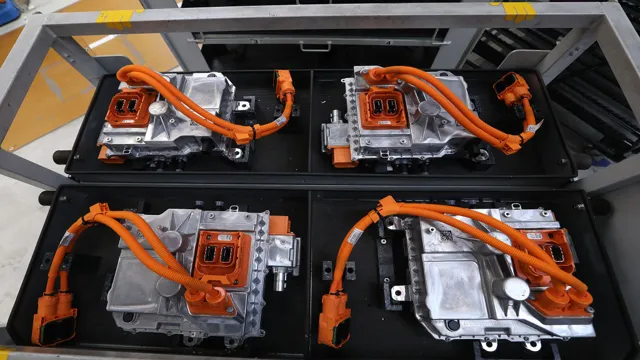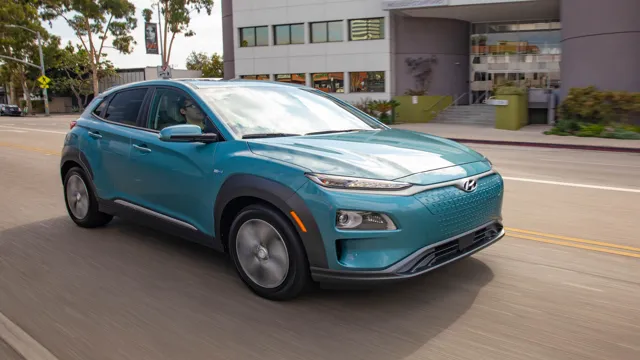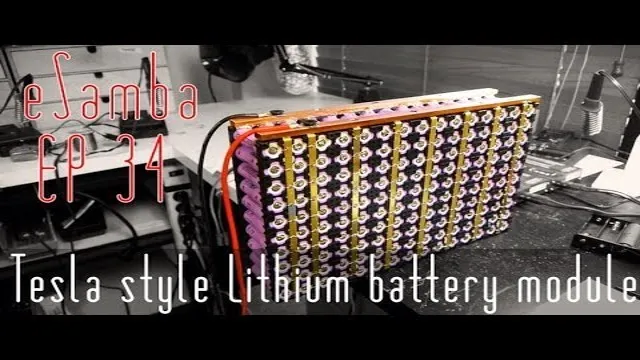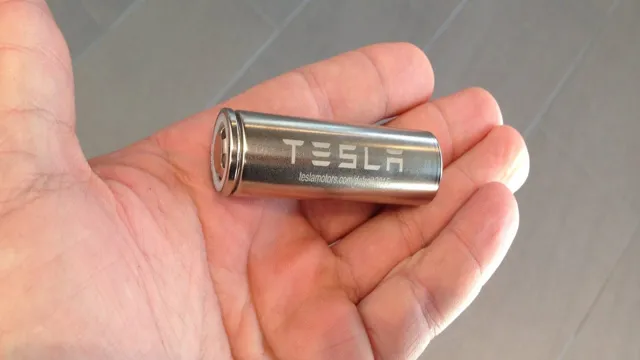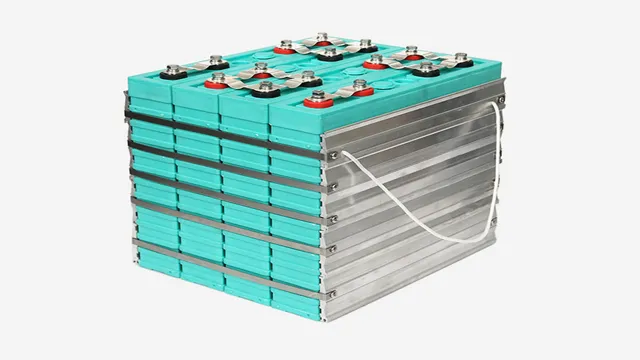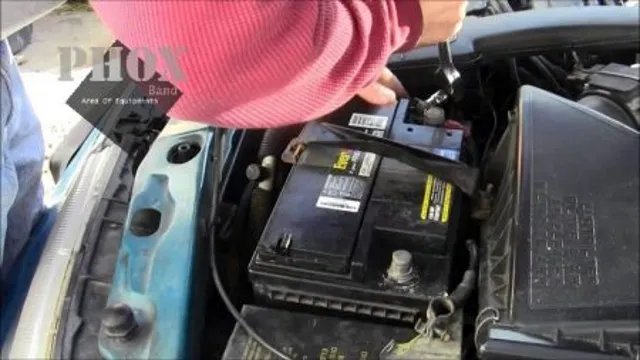Unlocking the Mysteries of Electric Car Battery Costs: Exploring the Average Price and Factors Affecting Them
Electric cars have been increasing in popularity around the world, with more and more people opting for environmentally-friendly options. However, one major factor that often plays a role in the decision-making process is the price of electric car batteries. Are they affordable, or is the cost a major deterrent? In this blog post, we’ll take a deep dive into electric car battery prices and explore the factors that impact the cost.
We’ll discuss how advancements in technology have brought down the prices in recent years and how the overall market trends might affect prices in the future. So, if you’re considering purchasing an electric car or simply curious about electric car battery prices, keep reading to learn more!
Average Cost
Looking to purchase an electric car and wondering about the cost of the battery? You’re not alone. The average price of an electric car battery can be a significant portion of the total cost of the vehicle and is a major factor in the decision to go electric. However, the good news is that the cost of electric car batteries has been consistently decreasing over the years.
In 2020, the average price for a 60 kWh battery pack was $137 per kWh, which equated to a total cost of around $8,200. Compare this to 2010 when a similar battery pack would have cost around $1,000 per kWh, or a total of $60,000. That’s an 87% decline in just 10 years! Of course, the actual cost of the battery will depend on the size and range of the electric vehicle, but the decreasing trend in battery prices is a promising sign for the future of electric cars.
Explaining the Cost of an Electric Car Battery
The cost of an electric car battery is one of the biggest factors that buyers consider when purchasing an electric vehicle. The average cost of a battery can vary depending on the size and make of the car, but it typically ranges from $5,500 to $15,000. While this may seem high compared to the cost of a traditional car battery, it’s important to consider the long-term benefits of driving an electric car.
Electric cars are more environmentally friendly and have lower maintenance costs in the long run. Plus, the price of electric car batteries is continually dropping as technology advances and production increases. As more manufacturers start producing electric vehicles, it’s likely we’ll see a reduction in battery costs.
Overall, the initial investment in an electric car battery may seem daunting, but with the rising costs of fuel and the benefits of a greener form of transportation, it’s a worthy investment.
Factors Influencing the Price of Electric Car Batteries
When it comes to the price of electric car batteries, there are a variety of factors that influence the cost. Firstly, the type of battery can greatly impact the price. Lithium-ion batteries tend to be more expensive due to their higher energy density, while lead-acid batteries are typically cheaper.
Additionally, the size of the battery and its capacity will also play a role in determining the cost. Generally, the larger the battery, the more expensive it will be. Another important factor is the level of technology used in the production of the battery.
Cutting-edge technology will often drive up the price. Finally, supply and demand also play a role in determining the cost of electric car batteries. As the demand for electric vehicles increases, the price of batteries may decrease due to economies of scale.
Overall, the average cost of an electric car battery is approximately $5,500, but this can vary widely depending on the above factors.
Comparing Types of Electric Car Batteries
The average price of an electric car battery largely depends on the type of battery used. Lithium-ion batteries are the most common type used in electric vehicles and they range in price from $125 to $275 per kWh. This means that the cost of replacing a typical electric car battery could range from $5,000 to $15,000.
However, the price of lithium-ion batteries has been steadily decreasing over the past few years due to advancements in technology and manufacturing processes. Other types of batteries used in electric cars include lead-acid, nickel-metal hydride, and solid-state batteries. Lead-acid batteries are the cheapest option, but they are also the heaviest and have the shortest lifespan.
Nickel-metal hydride batteries are more expensive than lead-acid, but they are lighter and have a longer lifespan. Solid-state batteries are a new type of battery that is still in development, but they are expected to be more expensive than lithium-ion batteries due to their higher energy density.
Lithium-Ion Batteries
Lithium-ion batteries are the most common type of battery used in electric cars. They are known for their high energy density, which allows for a longer driving range on a single charge. However, there are different types of lithium-ion batteries on the market, and it’s important to compare them when considering an electric car.
For example, some batteries use cobalt, which is expensive and can be mined in unethical ways, while others use alternative materials like nickel or iron. The type of battery can also affect the speed and efficiency of charging, as well as the overall lifespan of the battery. Ultimately, the choice of battery will depend on a variety of factors, including cost, performance, and environmental impact.
It’s important for consumers to do their research and consider all relevant factors when choosing an electric car with the best battery for their needs.
Nickel-Metal Hydride Batteries
When it comes to the different types of electric car batteries, one option to consider is the nickel-metal hydride (NiMH) battery. Comparing it to other battery types can help you determine what works best for your needs. NiMH batteries are known for their high energy-density and low cost compared to other battery types, making them a popular choice among carmakers.
While they have a lower energy density than lithium-ion batteries, their cost-efficiency makes them a more accessible option for many consumers. Additionally, NiMH batteries are more environmentally friendly than traditional lead-acid batteries, as they are non-toxic and recyclable. Despite their benefits, NiMH batteries do have limitations.
They have a shorter lifespan than lithium-ion batteries and can be less efficient in extreme temperatures. Ultimately, it is important to factor in your specific needs and budget when choosing the right type of electric car battery.
Lead Acid Batteries
When it comes to electric cars, the type of battery used is an important factor to consider. One common type of battery used in electric cars is the lead acid battery. While it is one of the oldest types of batteries used in cars, it has some advantages over newer technologies such as lithium-ion batteries.
For one, lead acid batteries are much cheaper to produce, which makes them more affordable for consumers. They are also more reliable and have a longer lifespan than other types of batteries. However, lead acid batteries are heavy and take up a lot of space, which can be a disadvantage in electric cars where weight and space are at a premium.
Additionally, they are not as efficient as other types of batteries, which can result in reduced driving range. Overall, while lead acid batteries may not be the most advanced technology, they still have their place in the electric car market and are a viable option for some consumers.
Popular Electric Car Models and Their Battery Costs
If you’re interested in buying an electric car, you may be wondering about the average price of an electric car battery. The cost of batteries can vary greatly depending on the model of the car and the manufacturer. However, as electric car technology continues to evolve, the cost of batteries is generally decreasing.
Popular electric car models such as the Nissan Leaf, Tesla Model S and Model 3, Chevy Bolt, and Kia Niro have battery costs ranging from $7,500 to $15,000. It’s also important to note that battery warranties can vary from 8 years/100,000 miles to 10 years/150,000 miles, depending on the manufacturer. Overall, the cost of electric car batteries is becoming more competitive with the cost of gasoline-powered cars.
As battery technology continues to improve and become more affordable, we can expect to see even more consumers making the switch to electric vehicles.
Tesla Model 3
One of the most popular electric car models on the market today is the Tesla Model This sleek and stylish vehicle has captured the hearts of eco-conscious drivers who want a car that not only looks good but performs well too. But one of the biggest concerns people have when it comes to electric cars is the battery cost.
While the exact cost of Tesla Model 3 battery replacements can vary, it generally ranges from around $5,000 to $7,000. However, many Tesla owners report that they don’t need to replace their batteries for years, thanks to the car’s efficient design and advanced technology. Ultimately, the cost of the battery should be factored in when deciding whether to buy an electric car like the Tesla Model 3, but it’s important to remember that the long-term benefits of owning an electric car can outweigh the initial cost.
Nissan Leaf
When it comes to popular electric car models, the Nissan Leaf is definitely a front-runner. One of the biggest considerations when buying an electric car is the cost of the battery and how long it will last. The battery for the Nissan Leaf has come a long way since its initial release, with newer models having a longer range and more advanced technology.
The cost of a replacement battery for a Nissan Leaf can range anywhere from $5,500 to $8,500, depending on the year and model. However, it’s important to note that while the cost may seem steep, the battery is expected to last for several years before needing to be replaced. Ultimately, the Nissan Leaf offers a reliable and eco-friendly option for those looking to switch to an electric vehicle.
The Future of Electric Car Batteries
The average price of an electric car battery has been a big topic of discussion when it comes to the future of electric vehicles. Currently, the average cost of an electric car battery is around $10,000. However, as advancements in technology continue to be made, experts predict that the cost will decrease significantly in the coming years.
This is good news for consumers interested in buying electric vehicles, as the price of batteries is one of the main factors that make these cars more expensive than their gasoline counterparts. In addition, as more manufacturers start producing their own electric car batteries, competition will increase, leading to even lower prices. With the potential for lower costs and continued improvements in performance, the future of electric car batteries looks bright.
Conclusion
In conclusion, the average price of an electric car battery is undoubtedly an important factor for anyone considering making the switch to electric vehicles. While the cost of batteries has come down significantly in recent years, it is still a major investment. However, with the benefits of lower maintenance costs, reduced emissions, and tax incentives, many drivers are finding the price tag worth it in the long run.
So, the average price of an electric car battery may seem shocking at first glance, but it’s important to remember that you’re not just buying a battery – you’re investing in the future of clean energy transportation. And that’s a price that can’t be beat.”
FAQs
What is the current average price of an electric car battery?
The current average price of an electric car battery is around $150 per kilowatt-hour.
Has the price of electric car batteries decreased over time?
Yes, the price of electric car batteries has decreased significantly over the past decade, thanks to advancements in technology and economies of scale.
What factors affect the price of electric car batteries?
The price of electric car batteries can be affected by factors such as raw material costs, supply and demand, and manufacturing costs.
What is the expected future price of electric car batteries?
Many experts predict that the price of electric car batteries will continue to decrease in the coming years as technology improves and production becomes more efficient.
